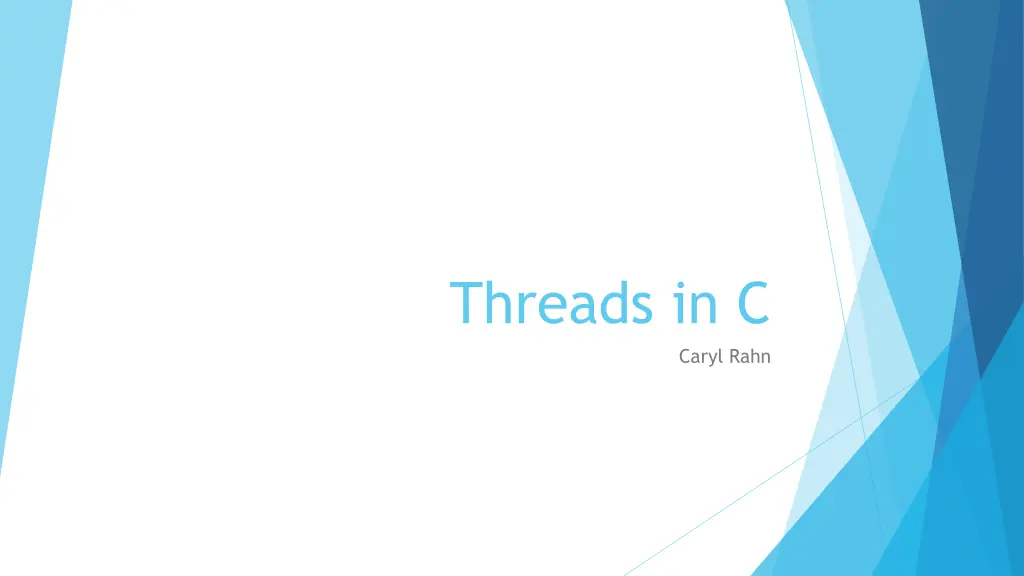
Multithreading in C Programming Explained
Learn about threads in C programming, including their definition, advantages, and implementation using pthreads. Discover why multithreading is crucial for improving application performance through parallelism. Find out how to create and manage threads in C to enhance the efficiency of your programs.
Download Presentation

Please find below an Image/Link to download the presentation.
The content on the website is provided AS IS for your information and personal use only. It may not be sold, licensed, or shared on other websites without obtaining consent from the author. If you encounter any issues during the download, it is possible that the publisher has removed the file from their server.
You are allowed to download the files provided on this website for personal or commercial use, subject to the condition that they are used lawfully. All files are the property of their respective owners.
The content on the website is provided AS IS for your information and personal use only. It may not be sold, licensed, or shared on other websites without obtaining consent from the author.
E N D
Presentation Transcript
Threads in C Caryl Rahn
What is a thread? Also known as lightweight processes A single sequence stream within a process Threads are not independent of one another like processes A thread shares with other threads: code section Data section OS resources (open files and signals) A thread does have its own: program counter (PC) Register set Stack space
Why use Multithreading Way to improve an application through parallelism For example, a browser has multiple tabs Threads are faster than processes because Thread creation is faster Context switching between threads is much faster Threads can be terminated easily Communication between threads is faster
C and Multithreading Multithreading is not supported by the language standard POSIX threads (Pthreads) are implemented in the gcc compiler You must include pthread.h You must link the program with the pthreads library Include the lpthread option on the compile line
Sample pthread_create has 4 arguments The first is a pointer to the thread_id set by this function. The third is NULL The third is the name of the function to be executed for the thread to be created. The fourth is used to pass arguments to the thread #include <stdio.h> #include <stdlib.h> #include <pthread.h> // A normal C function that is executed as a thread when its name // is specified in pthread_create() void *myThreadFun(void *vargp) { sleep(1); printf("In Thread \n"); return NULL; } integer used to identify the thread in the system Variable thread_id is of type pthread_t is an int main() { pthread_t tid; printf("Before Thread\n"); pthread_create(&tid, NULL, myThreadFun, NULL); pthread_join(tid, NULL); printf("After Thread\n"); exit(0); } processes. It blocks the calling process until the thread with an identier equal to the first argument terminates After declaring thread_id pthread_create() function is called to create a thread. pthread_join() is like a wait() for
